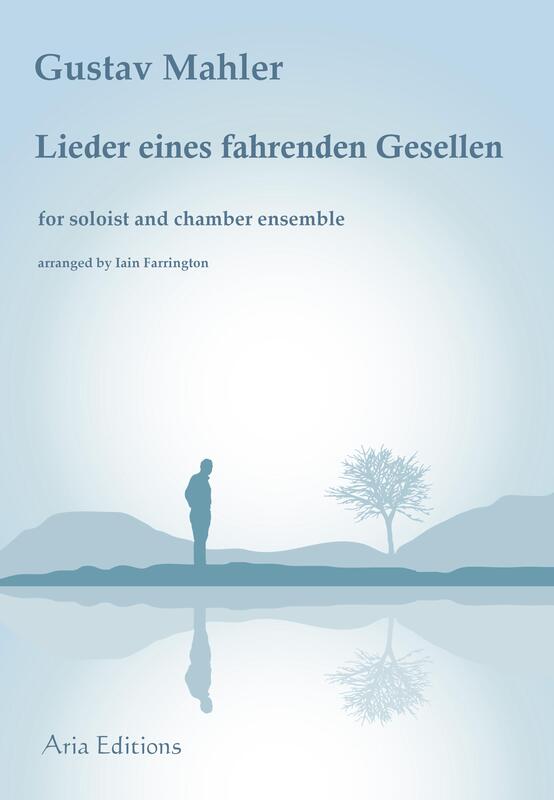|
Gustav Mahler - Lieder eines fahrenden Gesellen
for Soloist and Chamber Ensemble Arrangements of Gustav Mahler's music for small ensembles have existed since Arnold Schoenberg founded his Society for Private Musical Performances in Vienna in 1918. The Society had a strict environment (members only, no applause, no critics) and aimed to perform new compositions, as well as arrangements of unfamiliar contemporary music. Mahler’s music was relatively unknown at the time, and a number of his works were included in arrangements by Schoenberg and his colleagues. It was fitting that Mahler should have featured in this way, as his music often has a soloistic, contrapuntal orchestration, that points towards the pared-down sound world of Berg, Webern and Schoenberg himself. Schoenberg’s instrumentation for his Society was limited for financial reasons, and did not feature any brass instruments, bassoon, harp or timpani, as well as including the two most popular domestic instruments of the day, piano and harmonium to ‘fill in the gaps’. He arranged Lieder eines fahrenden Gesellen for ten players, including piano and harmonium. |
Now that Mahler’s music is widely performed and heard, a new chamber arrangement can appear unnecessary. However, by retaining the character of the original and treating every player as a soloist, Mahler’s exposed and chamber-like writing can be successfully realised. Hearing the clarity of individual lines can reveal hidden aspects of the score, adding an intimacy in the performing and listening experience, as well as enabling these monumental works to be performed in smaller venues without enormous financial constraints. It also allows the vocal soloist (and the text) to be heard clearly, without the problems of balance against a large orchestra. This arrangement consciously avoids recreating Schoenberg’s instrumentation, instead using only the instruments in Mahler’s score. Harp and horn are included and there is no piano or harmonium.
Available to hire or purchase from Aria Editions here
Instrumentation: flute, clarinet, horn, harp, percussion (bass drum, triangle, crash cymbal, glockenspiel, tam-tam), violin 1, violin 2, viola, cello, double bass (10 players)
Listen to a live performance of the arrangement here:
1. Wenn mein Schatz Hochzeit macht (3’41)
2. Ging heut Morgen ubers Feld (3’20)
3. Ich hab’ ein gluhend Messer (3’06)
4. Die zwei blauen Augen (5’13)
Available to hire or purchase from Aria Editions here
Instrumentation: flute, clarinet, horn, harp, percussion (bass drum, triangle, crash cymbal, glockenspiel, tam-tam), violin 1, violin 2, viola, cello, double bass (10 players)
Listen to a live performance of the arrangement here:
1. Wenn mein Schatz Hochzeit macht (3’41)
2. Ging heut Morgen ubers Feld (3’20)
3. Ich hab’ ein gluhend Messer (3’06)
4. Die zwei blauen Augen (5’13)
